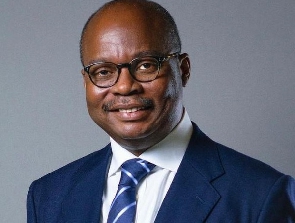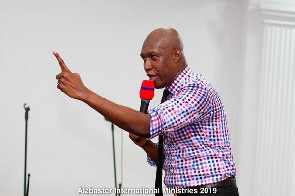Policies spearheaded by the Bank of Ghana (BoG), particularly those driven by mobile money, led to a rise in financial inclusion to 68 percent in 2021 from 22 percent in 2011.
According to the Bank, key drivers of inclusion over the ten-year period were mobile money, digital banking and the promotion of financial technology solutions – which have all become popular across the country, including rural areas.
BoG’s Governor, Dr. Ernest Addison – speaking at the Ghana Fintech Awards 2022, said the central bank’s pro-activeness regarding digital finance – with the issuance of the Branchless Banking Guidelines in 2008 – paved the way for financial services to reach the unbanked and underserved rapidly, and at reduced cost aided by technology.
“Ever since then, various policies have been issued to promote fintech solutions – of which the current Payment Systems and Services Act 2019 (Act 987) is at the core. Based on the principle of proportionate regulation, six risk-based licence categories with corresponding permissible activities are accommodated in the Ghanaian fintech space; thereby permitting participation by fintechs of varying size,” Dr. Addison explained.
“It is to be noted that this seemingly unusual policy approach is supported by about a decade of evidence on fintechs’ impact on financial inclusion. Subsequent increases in Ghana’s financial inclusion to 58 percent and 68 percent in 2017 and 2021 were largely due to fintech products and services delivered on the back of mobile money,” he added.
Despite the progress, which sees Ghana better the sub-Saharan Africa average of 55 percent, Dr. Addsion emphasised that much work still needs to be done to improve financial inclusion – especially for women, the unbanked, and underserved segments of the population.
He also stressed the importance of financial education and awareness, especially to protect users from fraudsters and scammers.
Market Development
The domestic digital finance market has recorded growth across all segments according to recently-released data from the BoG, a development that augurs well for the national digitisation and cash-lite agenda.
The cumulative value of transactions for segment leader – mobile money – exceeded the GH¢1trillion barrier for the first time, to close 2022 at GH¢1.07trillion. This came despite a decline from GH¢90.5billion in March to GH¢77.4billion and GH¢77.2billion in June and July respectively, ostensibly as users reacted to enforcement of the E-levy. Recovery began in August, with December accounting for GH¢112billion – a 47.2 percent increase over the GH¢82.9billion recorded in December 2021.
This dwarfed the value of transactions executed by cheques, which came in at approximately a quarter of mobile money with GH¢254.4billion – while Internet banking saw GH¢80.3billion worth of transactions completed.
Also on the digital front, E-zwich, Gh-link and the Ghipss Instant Pay (GIP) recorded GH¢14.64billion, GH¢551.3million and GH¢58.7billion worth of transactions respectively.
Reaffirming the BoG’s commitment to promoting financial inclusion through digital channels, Dr. Addison further stated: “Let me assure you that the Bank of Ghana is committed to the fintech agenda, and has demonstrated this through the conducive regulatory environment created for fintechs to thrive”.
Other developments
The BoG last month extended an invitation for financial innovators who seek to improve financial inclusion to submit applications for admission into its regulatory sandbox.
The invitation, which is open to registered financial institutions and unlicenced fintech startups, will support innovations in new digital business models not currently covered explicitly or implicitly under any regulation; new and immature digital financial service technology; as well as innovative and disruptive digital financial service products that have the potential of addressing a present financial inclusion challenge, the central bank said.
Business News of Friday, 3 February 2023
Source: thebftonline.com













